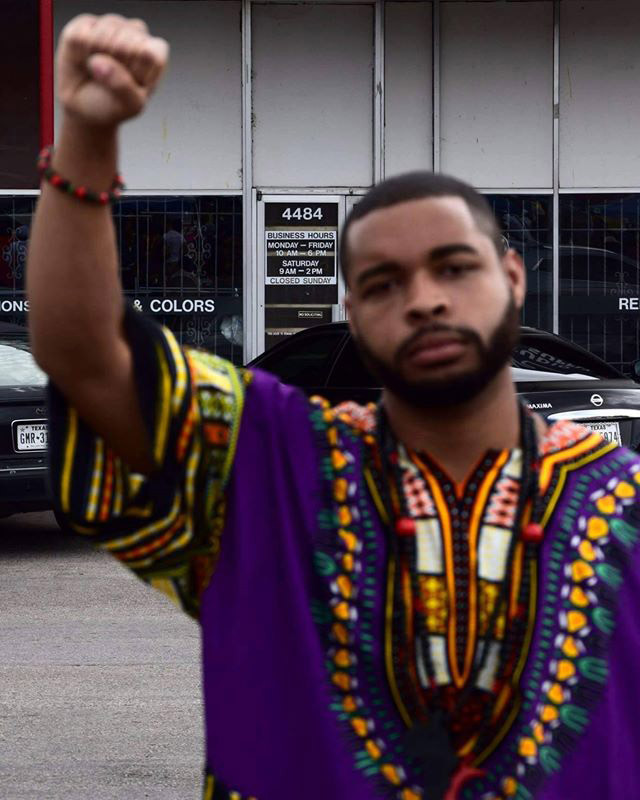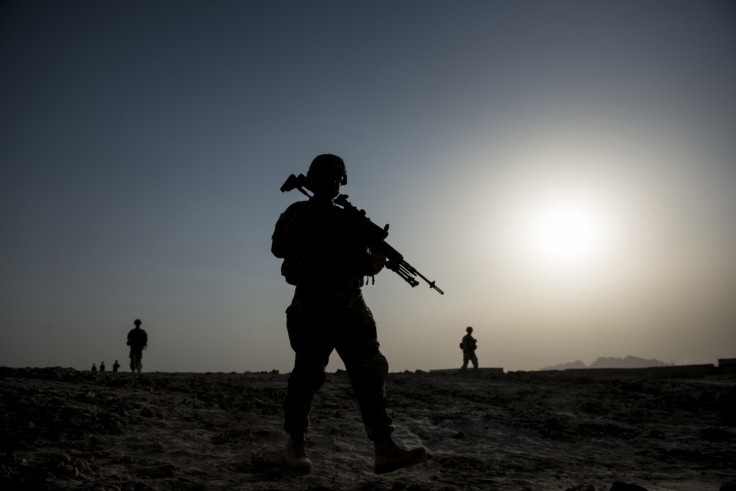Why are US military veterans shooting cops?
Violent rebellion from angry veterans also happens in UK, but is hidden behind carefully engineered 'hero' PR.
Two US military veterans, having returned from fighting in America's War on Terror, have turned their weapons on the US authorities to deadly effect.
In the Dallas and Baton Rouge cases, African-American shooters, who had respectively served in Iraq and Afghanistan, used their military training to kill police officers. The question is: why? And can it happen in the UK?

Black rage, veteran anger
First, a tip: ask black people about black anger and its causes. There are numerous black-led media initiatives here in the UK that can serve as a starting point.
There are centuries of recorded oppression in the US to explain, though not justify, what may have happened in those southern US cities recently.
That violent history must be tapped into by anyone honestly searching for an explanation, but a veteran like myself can speak about veteran's anger, which could be component in these killings.
A starting point might be to look at the explosive role of the Black Panther movement in the US in the 1960s. Born into oppression, tens of thousands of black men were conscripted into a South-East Asian war against a brutalised, colonised people with whom they might reasonably be expected to feel more solidarity with than Uncle Sam.
War changes you
War-fighting and military service in general can develop a person's politics in hothouse fashion.
Sometimes the ideas which develop in war are palatable to the majority; sometimes they are not. Some drift into mainstream politics following service – US politician John Kerry or UK MP Dan Jarvis, for example. Others find themselves at the fringes – including large segments of the black veteran community during Vietnam.
It is notable that both Baton Rouge shooter Gavin Long and Dallas Shooter Micah Johnson appear to have been drawn to groups with a "black nationalist bent".
Could it happen here?
On Tuesday, a report emerged about the 'forgotten generation' of soldiers in the UK. Its findings were in stark contrast to the idea that today's former service personnel are a 'warrior generation' supported by the so-called Military Covenant and similar initiatives.
The study found that a large proportion of the veterans polled struggled to afford basic essentials, felt alienated and many were unemployed.

There is no indication that those veterans in the case studies here are likely to 'go rogue', but the statistics are indicative of a deep well of ill-feeling among former UK military personnel. Violent and non-violent rebellion by angry veterans has always been a feature of political life in Britain, though it tends to be hidden behind the carefully micro-engineered 'hero' PR which is popular at the moment.
The most obvious example would be the rebellion in the New Model Army in the 1640s, or the involvement of veterans – including a black Royal Navy veteran named William Davidson – in the Cato Street plot to assassinate the ruling cabinet and prime minister of 1820. There have been others since.
Britain's lost veterans
People in the UK do not have easy access to deadly firearms. This means that political violence by ex-service personnel would likely take other forms – both tactically and ideologically.
Two recent cases of far-right extremism spring to mind.
In 2014, a soldier named Ryan McGee, 20, was jailed for making a nail bomb. He had been radicalised online in the fashion of the British jihadists who were flocking to Syria at the time. McGee, however, was obsessed with the far-right, the English Defence League, or EDL, the Klu Klux Klan, and similar. In a journal acquired by the court he vowed "to drag every last immigrant into the fires of hell with me." Although he avoided terrorism charges, McGee was jailed for two years.
In May 2016, a former RAF regiment soldier, Iraq veteran and Muslim convert, Stephen Gray, admitted attempting to reach Syria on two occasions in 2014. His infantry fighting skills would doubtless have been appreciated by Daesh, and perhaps re-imported here in the future. He is expected to be jailed.
What does this mean for Britain?
The American wars into which Britain sent its troops have delivered many things: a higher risk of terrorism, a damaged global reputation, bruised military egos and so on. The wars also trained a generation of soldiers, exposed them to varying degrees of violence and in many cases politicised them to boot.
They have returned home to a country with where toxic attitudes to immigration have flourished, where austerity impinges on their communities and where military values are prized while military men and women are forgotten.
It is worth considering whether a small section of them, a few lone wolves, may come to present physical threat.
Joe Glenton is an RT UK journalist, an Afghan veteran and author of Soldier Box, published by Verso Books.
© Copyright IBTimes 2025. All rights reserved.




















